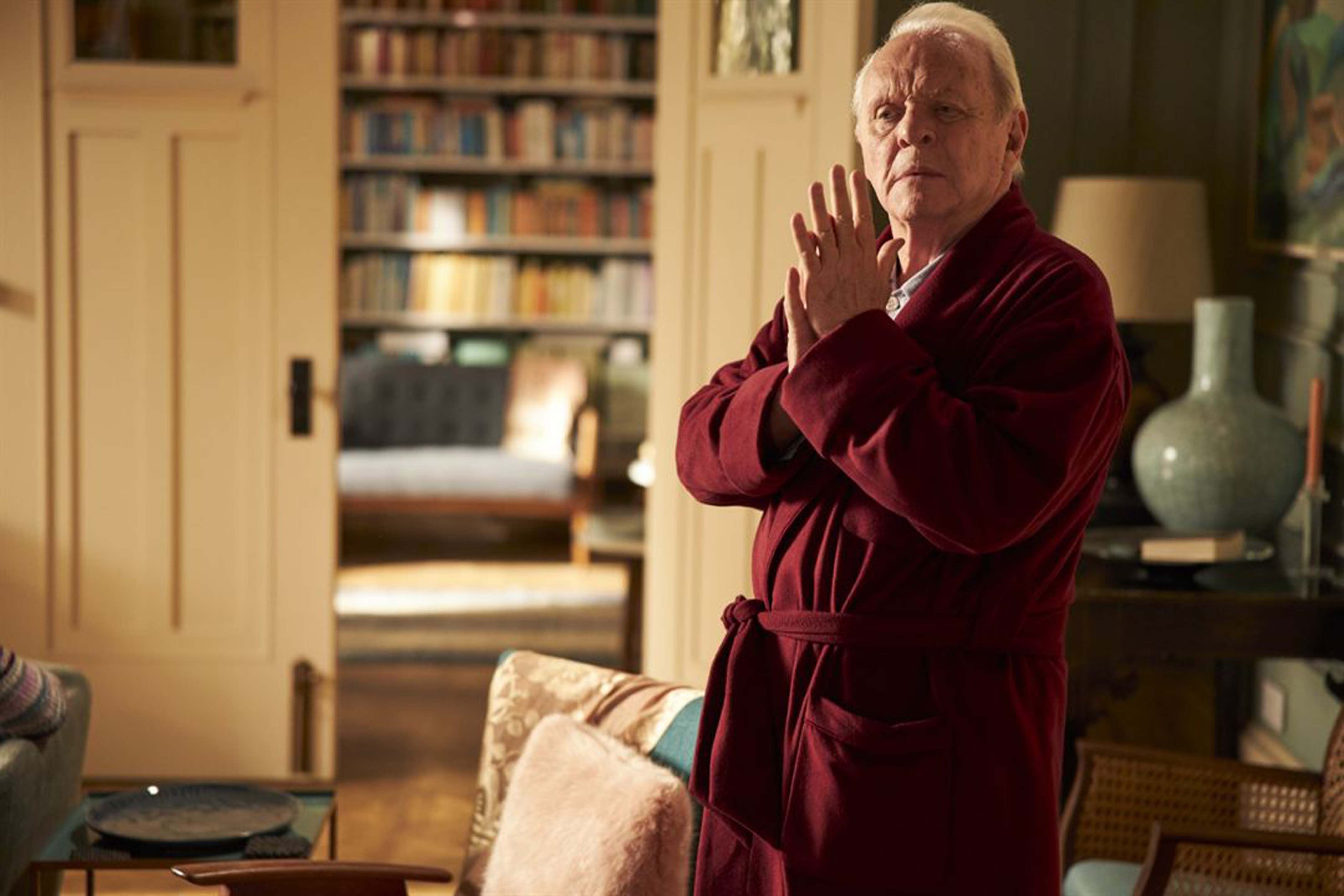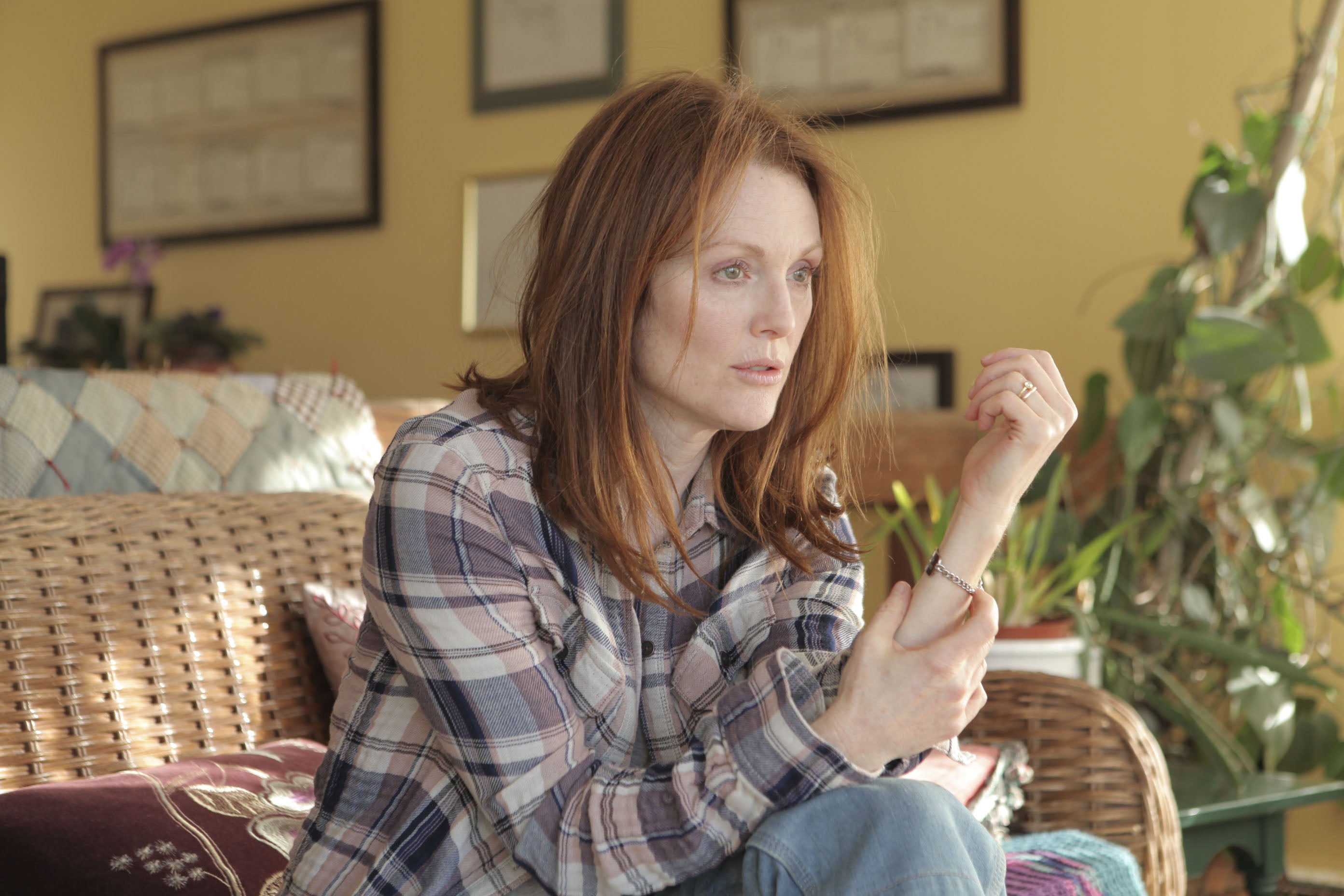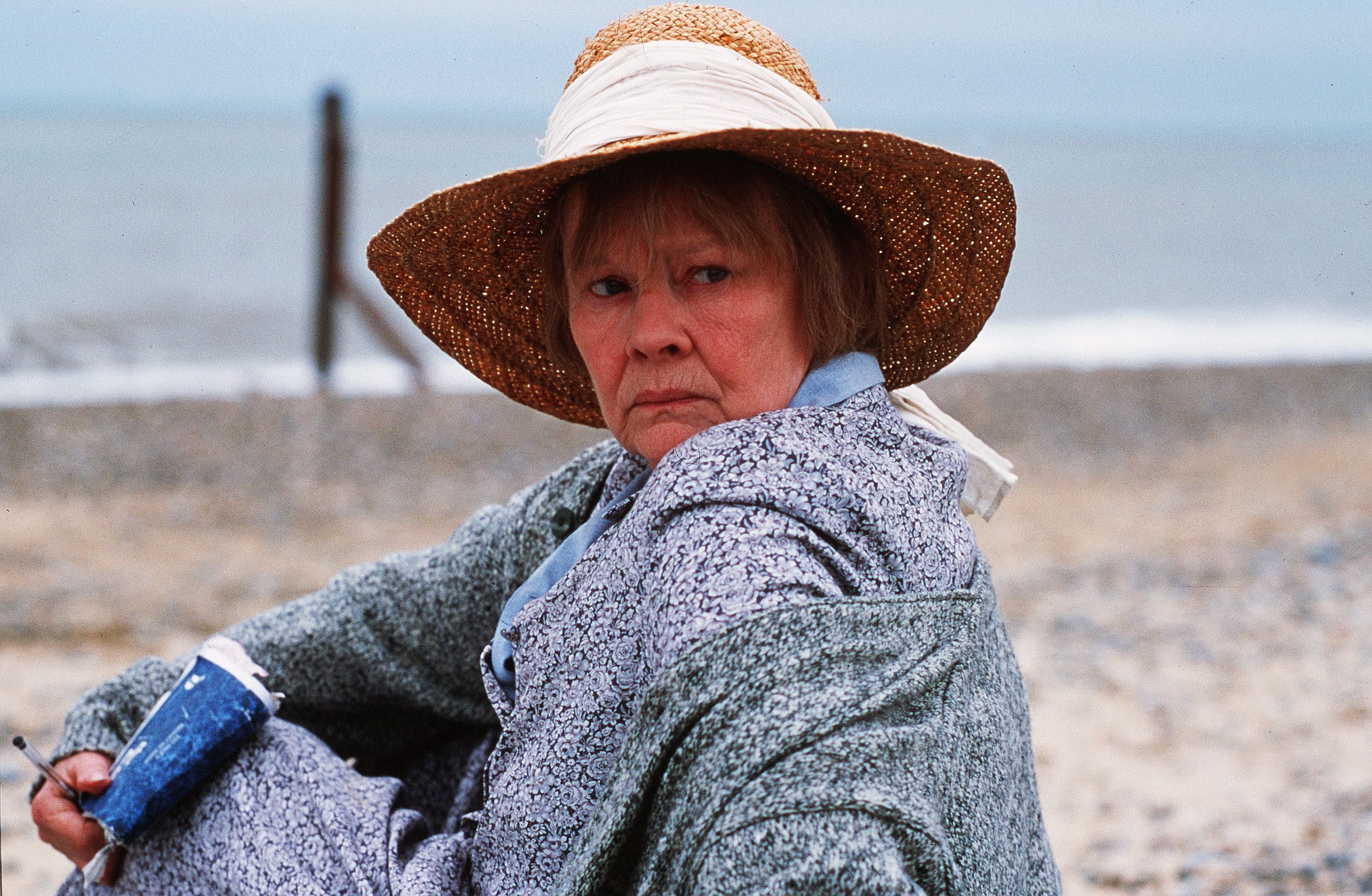The Father: What is the appeal of dementia movies?
‘The Father’, which is opening in UK cinemas this week, is one of a number of films on the seemingly unpromising subject of ageing and dementia. They might not be box office hits, but they can still intrigue and entertain, says Geoffrey Macnab

Speaking earlier this spring, British producer David Parfitt reflected on the challenges of financing Florian Zeller’s The Father. The film may now have gone on to win Oscars, but when potential backers were first approached, most were immensely sceptical. This was a story about a querulous old man with dementia who has a fraught relationship with his relatives and carers. There was considerable doubt that anybody would actually want to go and see it.
“If you go out pitching a film about dementia, it doesn’t go down that well. It’s tough to get these things going,” Parfitt acknowledged. “Even with Tony Hopkins and Olivia Colman attached, it was still tough.” In order to secure a green light, salaries had to be deferred and corners cut.
The Father premiered at Sundance in January 2020. Then came the Covid crisis and an agonisingly long wait. Eighteen months later, it is finally arriving in British cinemas this week. Critics have rhapsodised about Anthony Hopkins’s barnstorming, Academy Award-winning performance, likening it to his turns as Shakespeare’s King Lear on stage and on screen. The British have also basked in the afterglow of its Oscars success. Although writer-director Zeller is French, and The Father originated as a French play, Christopher Hampton wrote the screenplay, the main actors were English or Welsh, and the project is now being hailed as a triumph for UK cinema.
The Father is one of a number of films that have been made over the last two decades on the seemingly unpromising subject of ageing and dementia. To understand their appeal, it’s worth recalling a line from Sarah Polley’s Away from Her (2006), in which the Golden Globe-winning Julie Christie plays a woman with Alzheimer’s disease.
“Sometimes, there is something delicious in oblivion,” Christie’s character Fiona Anderson murmurs early on, as if she half enjoys the way her own senses are slowly becoming scrambled. There is mystery and pathos as well as terror and confusion in the process of ageing and memory loss. There can also be humour. One of the stranger, more poignant moments in the film is when Fiona is clearing up in the kitchen and puts the frying pan away in the fridge, as if that is the only sensible place for it. Her partner watches her with patience. He has a love for her that endures even when she seems forgetfully to transfer her affections to another man, in the same careless way that she places the cutlery in the wrong drawer.
In films about creeping memory loss, the usual rules about place and time are forgotten. Protagonists often live in the past as much as in the present. As in psychological horror films, nothing is stable.
“Strange things are going on around us,” Hopkins observes balefully in The Father as he stares at close relatives as if they are complete strangers. It’s that same eerie sensation Kevin McCarthy experiences in Don Siegel’s sci-fi classic Invasion of the Body Snatchers (1956) when he begins to suspect his neighbours have been replaced with imposters from another planet.
In movies featuring memory loss, protagonists’ grasp on their own and other people’s identities falters. This allows them to be tactless and outspoken. Some of the liveliest moments in The Father come when Hopkins’s character, Anthony, is bellowing at his daughter that he “can manage very well on his own”. His loved ones know all about his condition but are still often offended or incensed by what he says to them. The storytelling can switch from the farcical to the tragic in an instant.

Much of the drama in these films comes from the way the protagonists battle against their condition. It’s a fight that can have only one conclusion, but that doesn’t stop them from resisting it with all their might.
Actors relish playing characters whose faculties are fast fading. If they get it right, they’ll often win awards. They can explore extreme aspects of human behaviour and challenge themselves in ways that would not be possible in more traditional roles. Like everybody else, they’ll invariably bring something personal to the project – they are bound to have some relative or friend who has experienced at first hand what they are depicting on screen.
Filmmakers, meanwhile, are drawn to stories about brilliant people – often academics, artists or writers – whose minds are beginning to betray them. Like Hopkins in The Father, Julianne Moore won an Oscar for Still Alice (2014) playing a professor at an Ivy League college who is diagnosed with Alzheimer’s disease. The professor’s prodigious language skills made it all the more devastating when words began to fail her. “I can see the words hanging in front of me and I can’t reach them and I don’t know who I am,” she laments. The pathos of Moore’s performance lies in her awareness of her own situation and her inability to do anything about it. She is a resourceful and very practical woman, used to solving every problem life throws at her, but, for once, in the face of her Alzheimer’s, she can’t reason or argue her way out of her predicament.

Judi Dench’s Iris Murdoch in Richard Eyre’s Iris (2001) is in a similar situation. The brilliant author and philosopher wrote 26 novels. She was rebellious and free-thinking, but, in her Alzheimer’s-affected dotage, her mind has let her down. Jim Broadbent plays her devoted, long-suffering husband John Bayley, who has always trailed in her wake.
Like many movies dealing with memory loss and ageing, Iris is heavy on yearning and nostalgia. Eyre keeps flitting back to the past to show Iris (played as a vigorous younger woman by Kate Winslet) in her prime. She has become a shrivelled-up husk of the person she used to be. The great novelist now watches theTeletubbies for relaxation.
The film was marketed by Miramax in a slightly unlikely fashion as a sweeping love story. That wasn’t how it played. Bayley and Murdoch were too eccentric and unworldly for that. “Perhaps inevitably, the film becomes less interesting as it goes on,” said one critic, who made the very obvious point that Murdoch, towards the end of her life, when her memory was shot, was a far less lively and compelling personality than she was in her prime. The brilliance of Dench can’t hide the deterioration.
Hopkins in The Father isn’t the type to take refuge in the Teletubbies as his mind plays tricks on him. He remains the same imperious, roaring figure we remember from all his other screen roles. His memory may be going but he retains his movie star charisma, and that utterly distinctive voice rings out as loudly as ever. He can be charming one moment and irascible or paranoid the next. Hopkins is far too fiery an actor to play his role in The Father as a victim or an object of pity.

Alongside the more elegiac and introspective, there are other films that take a far more subversive approach to dementia. Tamara Jenkins’s irreverent family comedy The Savages (2007) is less about the suffering father, Lenny Savage (Philip Bosco) than his two unruly and resentful middle-aged children, Wendy and Jon (Laura Linney and Philip Seymour Hoffman). Tending to their father as his dementia takes hold enables them to make some sort of sense of their chaotic lives.
Equally caustic in their approach to ageing and mental decline are those Samuel Beckett plays, like Krapp’s Last Tape (filmed by Atom Egoyan with John Hurt) or Not I (filmed by Neil Jordan, with Moore’s mouth featured in huge close-up throughout) in which troubled and traumatised old-timers pore over their past.
No one is going to pretend that movies about dementia are likely to set the box office tills ringing any time soon. Producers still struggle to finance them. Given the choice on a Friday night between the latest Fast & Furious or a movie about an old man or woman losing their memory, audiences still overwhelmingly plump for the former. Even with the awards and enthusiastic reviews that have come the way of actors like Hopkins, Moore, Dench and Christie, profits have remained very modest when they’ve played characters with Alzheimer’s. Nonetheless, as these pictures have all proved, it is possible to tackle the bleakest and most daunting subject matter and still intrigue and entertain. The Father, Still Alice, Iris, and Away from Her take audiences into realms of the mind that no action movies or more conventional dramas will ever be able to explore.
‘The Father’ is in cinemas on 12 June
Join our commenting forum
Join thought-provoking conversations, follow other Independent readers and see their replies
Comments


Bookmark popover
Removed from bookmarks